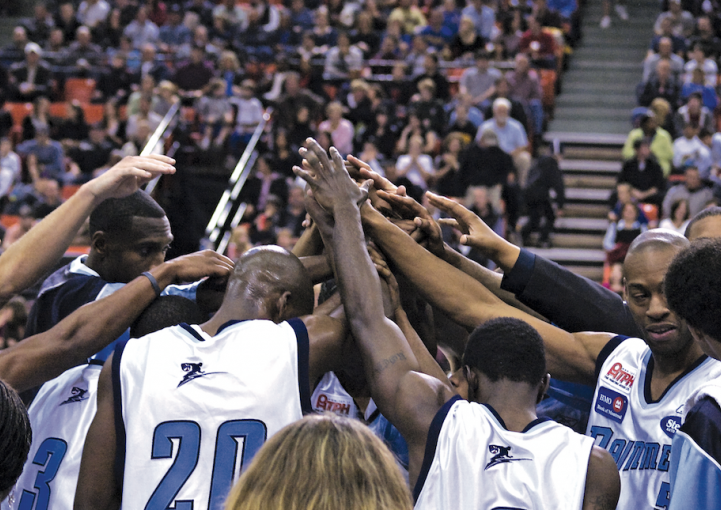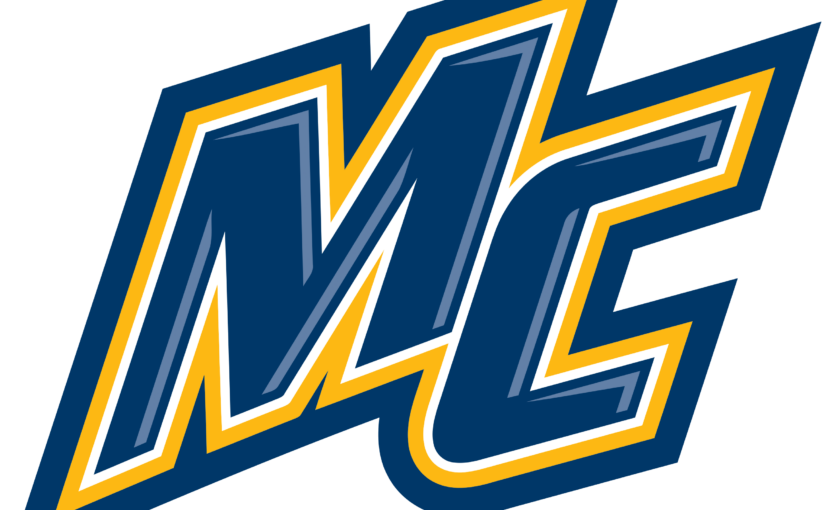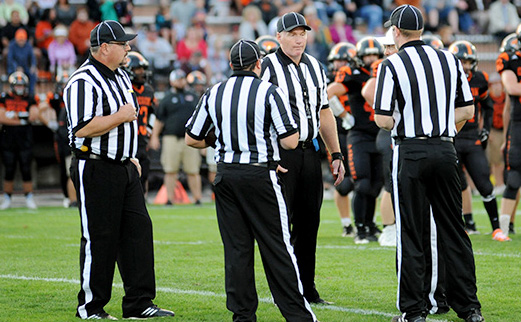Preparing Student-Athletes For College
After seven years in student-athlete development at a Power 5 school, I’ve seen many students walk on to campus for the first time. A few of these were able to compete for playing time as freshmen. But even fewer were fully ready for the new world they were thrown into away from athletics. These students left high school as a star with the entire school and community helping guide them along. Once they arrive, they quickly realize everyone here is a star. They often struggle with this transition for reasons that have nothing to do with athletic ability.
As a coach or athletic director, you have a responsibility to prepare these young people as students, as well as athletes — helping student-athletes in ways they don’t even know to ask.
Get Them a Mentor A fortunate athlete will have a large support base. Coaches, teachers, and family members can offer advice as the student prepares for college. Whether the student heeds this advice is another matter. One type of information that most will listen to comes from someone that has been where the student is headed. College or professional athletes can be role models or mentors in a way that no one else can. Try to find your student someone to talk with — possibly an alumnus or someone at a local college. Let the student ask questions and encourage the mentor to talk about his experiences. At my university, several times we would bring in alumni and older current student-athletes for a panel discussion with incoming student-athletes. We were fortunate to have access to professional athletes who were graduates. It was amazing to see how focused these freshmen were when the alumni spoke. This was a tremendous tool that reached young athletes in a unique way. If you can find this type of mentor, your athlete could benefit greatly.
A fortunate athlete will have a large support base. Coaches, teachers, and family members can offer advice as the student prepares for college. Whether the student heeds this advice is another matter. One type of information that most will listen to comes from someone that has been where the student is headed. College or professional athletes can be role models or mentors in a way that no one else can. Try to find your student someone to talk with — possibly an alumnus or someone at a local college. Let the student ask questions and encourage the mentor to talk about his experiences. At my university, several times we would bring in alumni and older current student-athletes for a panel discussion with incoming student-athletes. We were fortunate to have access to professional athletes who were graduates. It was amazing to see how focused these freshmen were when the alumni spoke. This was a tremendous tool that reached young athletes in a unique way. If you can find this type of mentor, your athlete could benefit greatly.
Have a Planning Meeting
After several years of knowing their routine of schedule, teachers, and extracurricular activities, these students are heading to college and into a system, they don’t know anything about. One issue many students face is the plethora of details that have to be taken care of in college. Topics such as enrollment paperwork, final transcripts, housing applications, and parking permits can be overwhelming. Put together a support group of people such as the coach, guidance counselor, sponsor, and family to figure out what all needs to be done. Make a list and make sure the student knows what needs to be done. Delays can occur if paperwork has not been done correctly. Most incoming student-athletes cannot afford to get behind in the classroom or on the athletic front. Help them avoid these issues.
Do Some Homework on Technology
One of the issues many students face as a freshman is the use of technology on their campus. Few high schools use learning platforms such as Blackboard and Canvas. I have seen this lack of experience become an additional roadblock to success. Not only do these students have to learn the material in their first courses, they have to learn how to use these systems. Many times, the students do not know where assignments are located or where they have to submit them. Help your student find out what their future institution uses. A simple internet search should quickly provide the answer. From there, videos can be found to assist them on the basics. When classes begin, your student will be glad he had some basic knowledge of the platform and can concentrate on the course content.
Talk to Them about Time Management
Although student-athletes are undoubtedly busy in high school, most have no concept of what they are about to face in regards to demands on their time. Below is an example of what an average football player’s schedule could look like in a Power 5 school.
6:00 AM – Weights/Run
8:00 AM – Study Hall
9:00 AM – Class
10:00 AM – Class
11:00 AM – Tutor
12:00 PM – Lunch/Free
1:00 PM – Class
2:00 PM – Position Meetings
3:00 PM – Team Meeting
4:00 PM – Practice
6:30 PM – Eat/Study/Homework/Free time/Rest (unless you have a tutor at night!)
Anyone who has been around this type of program knows that this is no exaggeration. A majority of the student-athlete’s time is spoken for. They have to become good time managers to be successful. Make sure they are aware of what they will face. Help them come up with a system before they leave you. Come up with ways to help them, such as using the calendar on their phone. Encourage them to practice scheduling things in the spring and summer before they leave for school. We want them to enjoy their last months in high school. But try to get them to pick a day here and there to practice this skill. When they arrive on campus in the fall, it will sink or swim.
Have a Hard Conversation with Them about Social Responsibility
Heading off to join their college teams is an exciting and happy time for your student-athlete. They are leaving for what they hope are four of the best years of their lives. While we should never dampen that excitement, there are dangers you need to let them know are out there. It is not an easy conversation to have, but it is possibly one that could keep them safe. As student-athletes, they will be in the spotlight. Every mistake they make will be magnified. Talk to them about the situations that they could face. Find information about Title IX offices and others that are similar on their campus. These offices now have a great deal of information about what is acceptable behavior and what are the processes when someone is accused of improper conduct. Have the student read or watch the information provided by the school. Most will have examples of situations that have occurred as a warning of what could happen. While it is not an easy conversation, talk “real talk” to your student. Talk to them about the scrutiny they will be under and how best to avoid situations that would put them in a bad light. Since your student may be a minor, you should talk to your parents beforehand to make sure they are on board. Assure them; this information is possibly the most important they will get as they prepare to leave the nest.
Student-athletes will always have people want to talk to them about their respective sports. They will get advice on shooting, passing, talking, or hitting. But few people are in a position to speak to them about the other part of being a student-athlete. You, as a coach or athletic director, have the chance to help them in a way few will see or appreciate. But the fulfillment you will feel both watching your student compete athletically and graduating graduates when the playing days are done is well worth the effort.
Cliff McCain works as a learning specialist in the athletic department at the University of Mississippi. He spent two decades working as a coach and administrator at the secondary education level. McCain holds a doctor of education degree in higher education and master’s degrees in history and educational administration.





